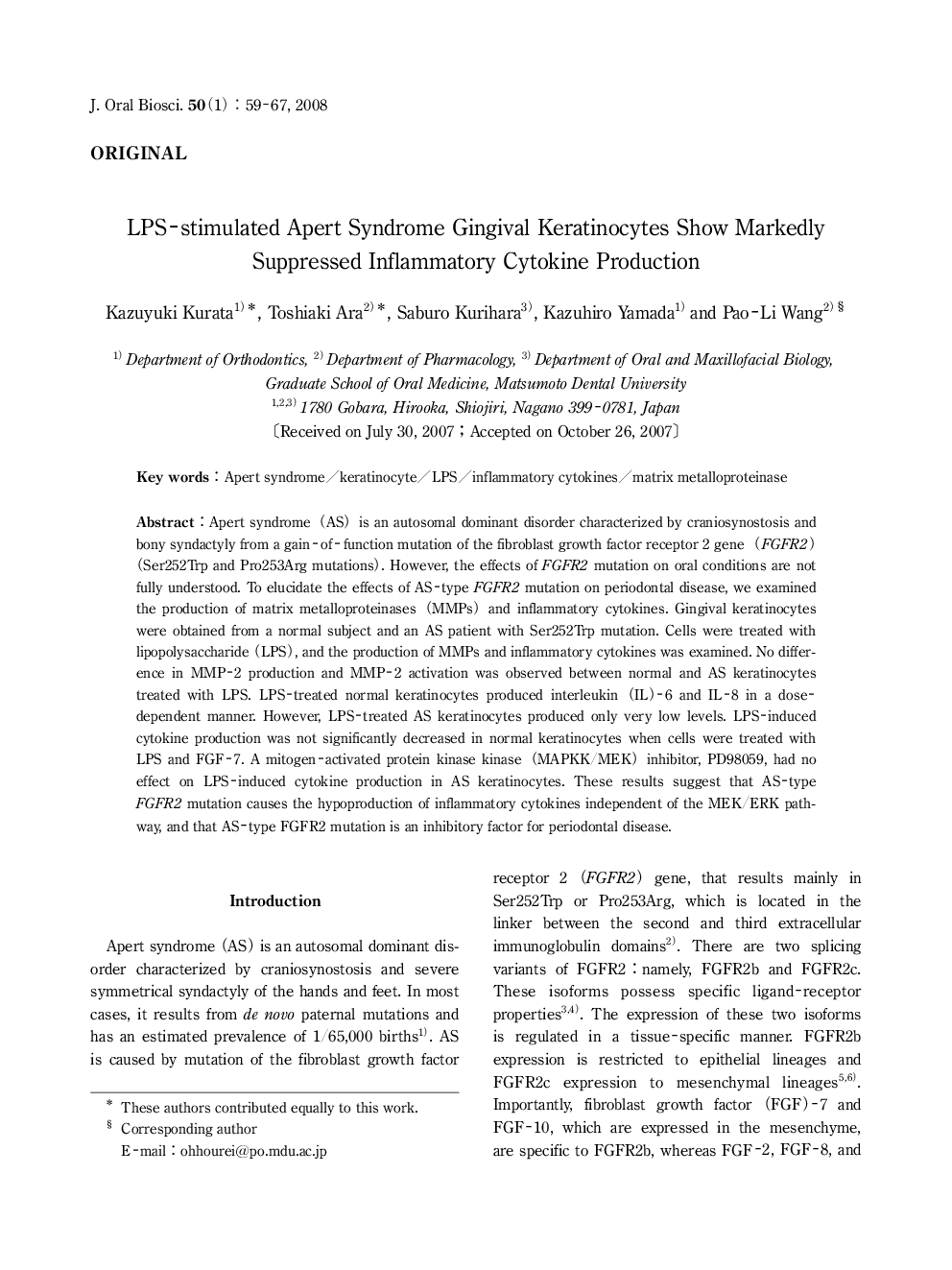| Article ID | Journal | Published Year | Pages | File Type |
|---|---|---|---|---|
| 2777070 | Journal of Oral Biosciences | 2008 | 9 Pages |
Apert syndrome (AS) is an autosomal dominant disorder characterized by craniosynostosis and bony syndactyly from a gain-of-function mutation of the fibroblast growth factor receptor 2 gene (FGFR2) (Ser252Trp and Pro253Arg mutations). However, the effects of FGFR2 mutation on oral conditions are not fully understood. To elucidate the effects of AS-type FGFR2 mutation on periodontal disease, we examined the production of matrix metalloproteinases (MMPs) and inflammatory cytokines. Gingival keratinocytes were obtained from a normal subject and an AS patient with Ser252Trp mutation. Cells were treated with lipopolysaccharide (LPS), and the production of MMPs and inflammatory cytokines was examined. No difference in MMP-2 production and MMP-2 activation was observed between normal and AS keratinocytes treated with LPS. LPS-treated normal keratinocytes produced interleukin (IL)-6 and IL-8 in a dose-dependent manner. However, LPS-treated AS keratinocytes produced only very low levels. LPS-induced cytokine production was not significantly decreased in normal keratinocytes when cells were treated with LPS and FGF-7. A mitogen-activated protein kinase kinase (MAPKK/MEK) inhibitor, PD98059, had no effect on LPS-induced cytokine production in AS keratinocytes. These results suggest that AS-type FGFR2 mutation causes the hypoproduction of inflammatory cytokines independent of the MEK/ERK pathway, and that AS-type FGFR2 mutation is an inhibitory factor for periodontal disease.
